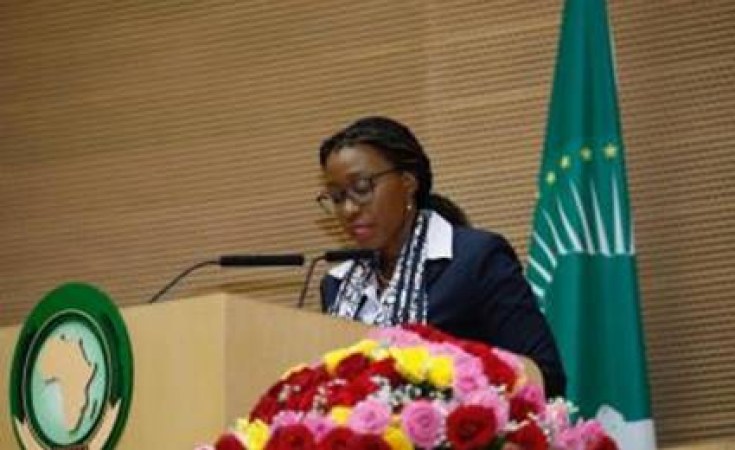Addis Ababa, Ethiopia, February 7, 2019 (ECA) - The 34th Ordinary Session of the Executive Council of the African Union opened in Addis Ababa Thursday with the Executive Secretary of the Economic Commission for Africa (ECA), Vera Songwe, imploring African leaders to collectively address issues affecting its youth, in particular those living as refugees and as internally displaced persons.
In a speech during the opening session of the meeting, Ms. Songwe said today in Africa there are 14.7 million internally displaced people and 7.3million refugees, affecting the continent’s growth prospects in a huge way.
“If we are to put the numbers into perspective, 23 million refugees represent twice the population of Tunisia, it is close to the population of Ivory Coast. The GDP of Tunisia today is about $40 billion dollars, twice that is 80 billion dollars, the GDP of Ivory Coast is $40 billion,” she said.
“The moral question is, how do we as a Union create the Africa we want if without shame or humiliation we let our youth, our young women lament in camps,” the ECA Chief asked.
“How do we as a Union raise our voices with indignation about the treatment of our youth as they flee the continent and are rejected on foreign shores if without conscience or creed we deprive them of peaceful residence in their own countries? The basic right of every citizen.”
She said the continent should ask itself how it can command moral authority to build just, equitable and inclusive societies when segments of its populations were reduced to being camp dwellers for decades.
Quoting the late South African President, Nelson Mandela, who once said; “There can be no keener revelation of a society's soul than the way in which it treats its children’, Ms. Songwe said exclusions from school of refugee children in response to fears by host communities should also be addressed.
“An Africa in search of growth cannot afford the luxury of camps of unproductivity,” she told the Executive Council meeting that is being held under the theme; Refugees, Returnees and Internally Displaced Persons: Towards Durable Solutions to Forced Displacement in Africa .
Digital ID
Ms. Songwe also spoke about opportunities provided by digital identification, digital trade and digital economy.
Displaced persons on the continent are part of an estimated 500 million Africans who do not have legal identity on the continent.
The lack of legal identity has been recognized by all as a barrier to inclusive development, hence the inclusion of legal identity for all by 2030 as one of the targets of the SDGs, she said.
Several countries in Africa are today taking advantage of rapid advances in digital technology to address existing challenges with the provision of legal identity established through digital ID systems, and this must be encouraged, Ms. Songwe added.
“Digitalization has opened opportunities to labour markets that transcends national boundaries. There are opportunities which allow people to work remotely. ECA will also explore partnerships with pioneers in this field, for example,” she said.
“To be able to fully maximize this potential, there is a lot we need to do as continent. This is why the ECA has recently established a center of excellence for Digital ID, digital trade and digital economy to support member countries to fully harness the digital potential, and to exploit the benefits of digitalization for the continent’s development.”
The work of the Center is being done in tandem with the UN-World Bank joint initiative on Legal Identity Agenda and in collaboration with the African Union Commission and various other partners.
Ms. Songwe reiterated the ECA’s commitment and support to work with member States, the AUC and the United Nations system to ensure long lasting solutions are found for the continent’s challenges.
Issued by:
Communications Section
Economic Commission for Africa
PO Box 3001
Addis Ababa
Ethiopia
Tel: +251 11 551 5826
E-mail: eca-info@un.org


